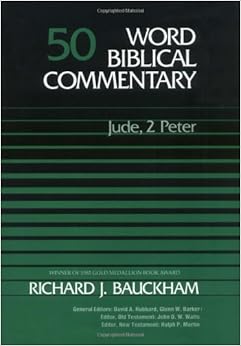A Sad Reality
Domestic abuse is a sad reality. Not only is it sad, but also frightening. It is most often committed in the context of an intimate relationship. More frighteningly, domestic abuse  is indiscriminate – people from a variety of ethnic, socio-economic, political, cultural, and educational backgrounds have been convicted of this heinous crime. Additionally, it has been perpetrated against people from a wide scope of ethnic, socio-economic, political, cultural and educational backgrounds. Indeed, even religious background does not ensure freedom from domestic abuse. Sadly, individuals and families suffer at the hands of individuals in Christian homes.
is indiscriminate – people from a variety of ethnic, socio-economic, political, cultural, and educational backgrounds have been convicted of this heinous crime. Additionally, it has been perpetrated against people from a wide scope of ethnic, socio-economic, political, cultural and educational backgrounds. Indeed, even religious background does not ensure freedom from domestic abuse. Sadly, individuals and families suffer at the hands of individuals in Christian homes.
It is important to note that domestic abuse is the repeated, random and habitual use of intimidation to control a partner or child. This can be manifested through physical force, but is often tainted with emotional, psychological, financial and/or sexual pressure. Below is a list of things we need to know regarding the subject of domestic abuse. The list will cover impact, consequences and solutions.
It is a Crime
In many places across the world domestic abuse is a criminal act.
If a country has a law against domestic abuse – that law makes it illegal to exercise intimidation, whether physical, emotional, psychological, financial or sexual, in order to control another human. Therefore, we need to know that domestic abuse rightly carries the prospect of being sent to prison and having a criminal record. The consequences of being found guilty of domestic abuse range from an official warning to imprisonment. The Bible commands us to obey the law of the land in as far as it is in agreement with Scripture. Any law prohibiting domestic abuse is in agreement with Scripture and so must be obeyed.
It is a Sin
It must be acknowledged, even though many countries have outlawed domestic abuse, that there remain countries today which have no laws to protect people from domestic abuse. In fact, it is imperative to understand that a law does not eradicate the issue. Thus, we must understand that domestic abuse is a sin whether or not it is illegal. The Bible commands loving relationships within the family: husbands are to love their wives (Col. 3:19), to nourish and cherish their wives (Eph. 5:29) and to live peaceably with all (Rom. 12:18). More than that, Scripture also warns that God hates the one who does violence (Ps. 11:5). Domestic abuse is sin; it is contrary to God’s design for marriage relationships (and parental relationships cf. Eph. 6:4; Col. 3:21).
It harms the Perpetrator
As noted in the previous point, sin has consequences and this is true for the perpetrator of sin.
Those who domestically abuse their wives will harm themselves. The Bible says that when a man and woman marry they are no longer two people, but one flesh (Eph. 5:31). Subsequently, to harm your spouse is to harm yourself. This harm may come about by destroying a God-given relationship. Marriage is a gift from God and to act in such a way as to damage this relationship will result the loss of something good. There is also the danger of eternal harm – while Christians are capable of sinning, persistent sin begins to evidence a lack of holiness and purity. To consistently sin in one particular area would lead to legitimate questions concerning salvation. Perpetrators may need to consider their eternal destiny in light of domestic abuse.
Indulging in domestic abuse also contributes to a warped view of reality, for example blaming your spouse for the abuse, considering yourself the victim, unbiblical view of women in general, and so on.
It harms the Victims
The harm inflicted on victims of abuse is sometimes physically apparent – scars, bruising, broken bones, hair loss, weight loss, poor hygiene, social awkwardness, and other signs and symptoms.
Again, by abusing your spouse you rob them of a precious relationship which should be exercised for their good (Eph. 5:25-28). This loss of relationship can very quickly lead to isolation. There are self-esteem issues which will take their toll on a victim suffering domestic abuse. There can also be health issues related to abuse, not only physical but mental too. Stress and fear may also present itself in the form of other health problems. Even though the domestic abuse may begin mildly, or sporadically – it may quickly escalate to an uncontrollable level. It is possible for the final outcome to be murder!
It harms Children
Whether or not your abuse is directed toward a child or children, they are still harmed.
To begin with children are incredibly observant – therefore any abuse, stress or strain in the marriage relationship will be noted by them, even if the perpetrator attempts to keep it hidden. This brings fear, worry and uncertainty into the life of children. While they hope for a unified family, with love shown by both parents, they also wish that it would all be over so nobody gets hurt. This hurt will be primarily emotional and psychological.
Any abuse directed or aimed at children will result in similar harm perpetrated against a victim noted above. There will be physical symptoms and emotional symptoms and ultimately children will suffer the same trauma as a God-given beneficial relationship is damaged and taken away from them.
It needs to be Mentioned
There is often little willingness to be honest about feelings, fears, worries and hopes. To keep this inside will not resolve domestic abuse.
Initially, Christians in general need to be more open concerning the reality of domestic abuse, especially the sad occurrence of domestic abuse in Christian households. Churches need to show an awareness that this happens, intolerance to its presence in Christian households and a willingness to address it in a loving, helpful and healing way. As Christians we must make every effort to make it easy for people to speak up regarding domestic abuse.
That is only one side of the coin though. It is important for perpetrators and victims to then avail of this open and honest environment by talking about domestic abuse. Those who abuse their families but want to stop must speak up. Even people who suffer from bouts of anger, impatience and violent desires should speak before it descends into sustained abuse. To be able to break the cycle of abuse, abusers must seek help by talking about the issue.
Ignoring it will not send it away.
It needs the Gospel
The stark reality is that simply speaking about domestic abuse will not stop it.
There is only one thing which can truly stop domestic abuse and that is the gospel; the good news of Jesus Christ, his life, death and resurrection is the only real solution to this problem. All sin arises from the seeking of something which can only be found in God through Jesus by the Spirit. Domestic abuse is no different.
In the book of Ephesians we are told that all people are dead in sin, obedient to the Devil and children of wrath before being changed by Jesus Christ (Eph. 2:1-3). Domestic abuse reveals these sinful characteristics. Abusers are dead to the consequences of their actions, exhibit an obedience to evil as they destroy relationships and people and deserving of God’s wrath because of wilful sin. But, God stepped in with great love and mercy to make us alive through Jesus Christ (Eph. 2:4-9). This is the gospel and it brings about a change in us as we are no longer dead, disobedient and descendants of wrath. Instead, as we are later told in Ephesians we are cleansed, pure, splendid, holy and blameless (Eph. 5:25-27).
This is the only real solution to domestic abuse, a change of heart because of the almighty work of Jesus Christ on the cross which possesses the power to transform us in his image. Abusers will only stop abusing their victims when they have their hearts changed, and for disobedient Christians engaging in this when they realise afresh God’s love, mercy and grace.
Close to Home
It should be with great grief that we realise that domestic abuse is widespread – it could be taking place in a home connected to our church, it could be taking place in the home next door. However, it could also be happening in your own home. The things we have noted above are concerned primarily with explicit abuse, but the reality is that we could be involved in implicit or subtle abuse. We may not force our spouses to have sex with us against their will, but we may guilt them into it. We may not scream at our children, but we may speak to them disrespectfully. We may not hit our spouses, but we may make them fear us in other ways. While implicit or subtle abuse may not be intentional, it is no less damaging and harmful for us and our families. And, it is no less serious in the eyes of God.
However, there is hope and that hope is found in Jesus and his power to change!

 have heard numerous times. Indeed, it is likely a piece of advice which they act upon too. Yet, so often this is taken to mean read different authors, different topics, and different genres. Today I want to reflect on a brilliant piece of advice I heard in a sermon several years ago. His advice was to check who publishes the books you read. This is something that I have consistently kept an eye on as I attempt to read widely. In essence it is the same advice, read widely, but not just authors, topics and genres…also publishers. This is great advice for at least three reasons:
have heard numerous times. Indeed, it is likely a piece of advice which they act upon too. Yet, so often this is taken to mean read different authors, different topics, and different genres. Today I want to reflect on a brilliant piece of advice I heard in a sermon several years ago. His advice was to check who publishes the books you read. This is something that I have consistently kept an eye on as I attempt to read widely. In essence it is the same advice, read widely, but not just authors, topics and genres…also publishers. This is great advice for at least three reasons: also keenly aware that God has given us the whole counsel of Scripture which includes 2 Chronicles, Ecclesiastes, Haggai and Jude! That means I often enjoy preaching from those lesser known books.
also keenly aware that God has given us the whole counsel of Scripture which includes 2 Chronicles, Ecclesiastes, Haggai and Jude! That means I often enjoy preaching from those lesser known books. Ecclesiastes (
Ecclesiastes (